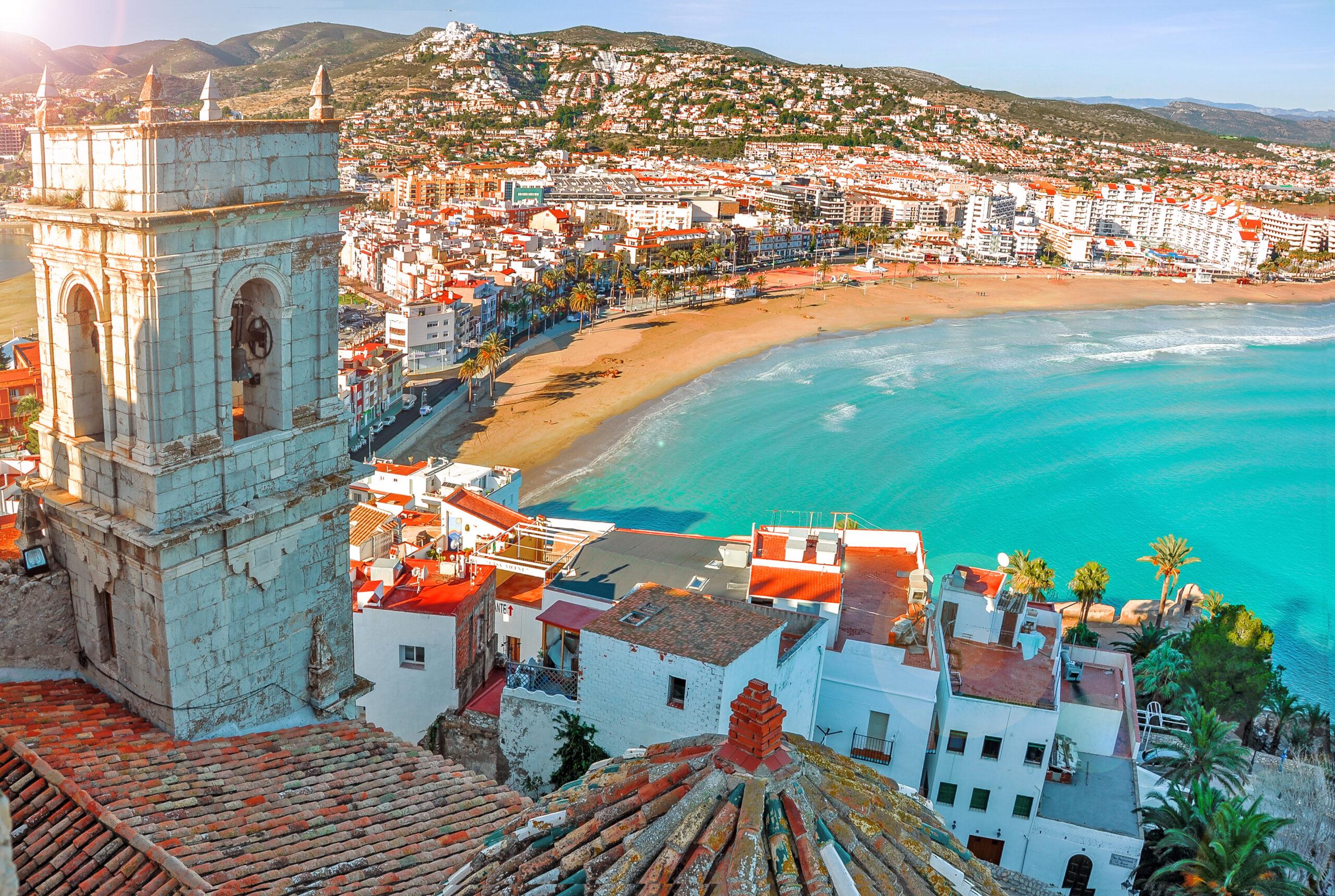In the heart of Spain, under the blaze of the Mediterranean sun or the quieter glow of ancient street lamps in old-town alleys, lies a tradition that might baffle outsiders with its unique take on celebratory customs. Imagine the scene: a joyous gathering in a vibrant, local restaurant, laughter spilling over the brims of sangria glasses, plates of tapas being passed around with familial ease, and amidst it all, the birthday person, the star of the fiesta, reaching for the bill. Yes, you read that right. In this beautiful, tradition-steeped country, when the calendar page turns to the day of your birth, it’s not just about receiving gifts and well-wishes. It’s about embarking on a generous ritual that sees the birthday individual taking care of the tab, covering the cost of food and drinks for everyone in attendance. This practice, intriguing to those hailing from lands where the opposite is often expected, invites a closer look. What cultural nuances give rise to this custom? How do Spaniards perceive this tradition, and what does it signify about their values and social norms? Join us as we dive into the heart of this convivial practice, exploring the reasons behind why, in Spain, blowing out the candles might also mean opening up your wallet.
Exploring the Unique Tradition of Birthday Celebrations in Spain
In the vibrant tapestry of Spanish culture, where the sun-drenched streets echo with laughter and the air is thick with the aroma of paella and sangria, there lies an intriguing birthday tradition. Unlike other places where the birthday person might expect to be treated, in Spain, it’s customary for them to foot the bill for everyone’s food and drinks. This might seem peculiar at first glance, but it’s deeply rooted in the values of generosity and hospitality that are quintessential aspects of Spanish life. The act is not seen as a burden but rather as a joyous expression of gratitude for another year of life and the company of friends and family.
This tradition underscores a significant cultural emphasis on communal experiences and shared happiness. The Spanish have a beautiful saying, “Mi casa es tu casa” (My house is your house), which encapsulates their approach to relationships and celebrations. The birthday host’s act of paying is akin to opening one’s home and heart, inviting loved ones to partake freely in the happiness of the occasion without the weight of financial contribution. It fosters a sense of unity and strengthens bonds, turning the celebration into a collective experience where the focus is on the joy of gathering rather than the cost. In contrast to individualistic birthday norms, where guests bring gifts and contribute to the celebrant’s happiness materially, this practice enriches the spirit of community and personal connections within the tapestry of Spanish social life.
| Aspect | Significance in Spanish Birthday Tradition |
|---|---|
| Generosity | The birthday person’s gesture of paying symbolizes abundance and sharing. |
| Community | Emphasizes the importance of collective joy and togetherness. |
| Cultural Values | Reflects the Spanish priorities of hospitality and close relationships. |
Through this unique lens, birthdays in Spain transcend beyond mere annual rituals. They become vibrant expressions of love and community, where the act of giving supersedes receiving, painting each celebration with strokes of warmth, unity, and joy. This cultural quirk, while surprising to some, is a beautiful reminder of the diverse ways in which societies honor life’s milestones.
The Cultural Roots Behind the Spanish Birthday Treat
In many cultures, the person celebrating their birthday can typically expect to be treated to gifts, food, and drinks, but in Spain, the script is flipped, making for a unique and rich tradition deeply rooted in its social fabric. This practice emphasizes the Spanish value of generosity and the joy of giving. In Spain, it is customary for the cumpleañero (birthday person) to cover the cost of the festivity, which includes everything from the elaborate meals to the flowing drinks. This gesture is seen not as a burden but as a way to share happiness and gratitude for another year of life with friends and family. The act of paying for one’s own birthday celebration might seem peculiar to outsiders, but it beautifully illustrates the Spanish saying, “Lo que importa es dar, más que recibir” (What matters is to give, rather than to receive).
A typical birthday gathering in Spain transcends mere eating and drinking; it’s a feast that reflects the country’s rich culinary traditions and tight-knit community values. Imagine tables laden with tapas, large pans of paella for sharing, and, of course, a generous supply of sangría or tinto de verano. To better understand this, let’s break down a simple table showcasing just a snippet of what such generosity might look like:
| Item | Description |
|---|---|
| Tapas | Small dishes such as olives, cheeses, and Iberian ham, perfect for sharing. |
| Paella | A signature Spanish rice dish with seafood or meat, cooked in a large pan to serve everyone. |
| Sangría | A refreshing mix of red wine, chopped fruit, a sweetener, and a small amount of brandy. |
This practice not only underscores the communal aspect of Spanish celebrations but also highlights the importance of selflessness and celebration of life itself. Each person, when their time comes, gets a chance to express their gratitude and celebrate with loved ones by bearing the cost of the celebration, thereby perpetuating a cycle of generosity and togetherness.
Navigating Social Expectations and Etiquette in Spanish Birthday Gatherings
In Spain, the tradition where the birthday individual covers the cost of food and drinks for their guests might seem counterintuitive to visitors or those unfamiliar with Spanish culture. Yet, this practice is deeply rooted in the social fabric, echoing a broader perspective on generosity and communal celebration. Spaniards view birthdays not just as a personal milestone but as an opportunity to gather, indulge, and create memories with loved ones. It’s a gesture of appreciation towards those who make our lives richer. Consequently, playing the gracious host and bearing the expense is seen as both a privilege and a way of saying, “Thank you for being a part of my life.”
The customs surrounding this practice are not only about paying the bill but also involve certain etiquettes that ensure the gathering remains joyful and stress-free for everyone. Guests, for their part, are expected to bring thoughtful gifts and their best spirits to the celebration. There is often an unspoken understanding that generosity begets generosity, and someone else will reciprocate when it’s their turn. Below is a simplified guide on navigating these social expectations:
| Role | Expectation |
|---|---|
| Birthday Individual | Covers meal and drinks, ensures all guests feel welcome |
| Guests | Bring gifts, engage in festivities, offer to help with arrangements if needed |
| Everyone | Participate in singing ‘Happy Birthday,’ enjoy the food, and share stories or games |
- Engaging with the cultural practice of the birthday person paying not only enriches the celebration but also strengthens bonds among friends and family.
- The joy of the event is amplified when everyone involved adheres to these unspoken yet universally understood expectations, fostering a sense of community and warmth that defines Spanish social gatherings.
Understanding and embracing these nuances can make attending or hosting a Spanish birthday gathering an enriching experience, filled with laughter, good food, and the joy of shared companionship.
Recommendations for Celebrating Birthdays in Spain Without Breaking the Bank
Embarking on birthday celebrations in Spain, especially when tradition dictates that the birthday guy or gal foots the bill, doesn’t have to leave your wallet weeping. Consider reinventing the celebration with a focus on experiences and connections rather than extravagant spending. A picnic in one of Spain’s breathtaking parks or beaches is a splendid idea. Pack homemade treats, a Bluetooth speaker, and a frisbee for an afternoon of laughs and good times. Not only does this foster deeper connections among friends, but it also showcases the beauty of Spain’s natural landscapes, all while keeping costs at a minimum.
Another inventive yet budget-friendly way to honor another trip around the sun is to host a potluck party at home. Invite friends to bring a dish from their own or another culture, turning your celebration into a gastronomic journey around the world. To add a spark of creativity, set a theme for the dishes based on different regions of Spain or around the globe. This not only saves money but also turns the meal into an interactive and memorable experience. For added fun, create a simple yet engaging quiz related to the dishes served, making everyone’s taste buds and brains work in tandem. Not only is this approach easy on the pocket, but it also promises an evening filled with laughter, learning, and a tapestry of flavors.
| Dish | Origin | Contributor |
|---|---|---|
| Paella | Valencia, Spain | Maria |
| Sushi | Japan | Alex |
| Tagine | Morocco | Laila |
This table exemplifies a simple layout for organizing a potluck with international flair, turning your birthday into a festival of world cultures. Celebrating your birthday in Spain, even when tradition dictates the celebrant covers the tab, can still be a richly rewarding experience without straining your finances.
To Wrap It Up
As the sun sets on another vibrant day in Spain, casting its warm, golden hue over bustling plazas and quiet, cobblestone streets alike, we are reminded of the rich tapestry of traditions that make this country so enchanting. Among these is the seemingly peculiar custom of the birthday person covering the cost of food and drinks for their gathered friends and family. While to the uninitiated, this practice may appear counterintuitive, it deeply embodies the Spanish ethos of generosity, community, and the unbridled joy of sharing one’s milestones.
In the end, it’s not just about the act of paying; it’s a celebration of life, relationships, and the simple pleasure of being together. So, the next time you find yourself in Spain, singing ‘Cumpleaños Feliz’ around a table laden with tapas and tinted glasses of sangria, remember that you’re partaking in more than just a party. You are weaving yourself into the very fabric of Spanish culture, where generosity illuminates every corner of life, and every meal shared is a testament to the beautiful spirit of togetherness.
As we draw the curtain on this exploration of Spain’s unique birthday tradition, let it be a reminder of the diverse ways cultures around the world celebrate individual milestones. In Spain, the birthday person’s gesture of paying it forward is but a single thread in the global tapestry of communal joy and affection. So, wherever your travels or interests may take you, let the essence of this tradition inspire you to find beauty in the shared human experience, transcending borders and touching hearts. Buen cumpleaños, and may the spirit of togetherness follow you in all your celebrations, Spanish or otherwise.




